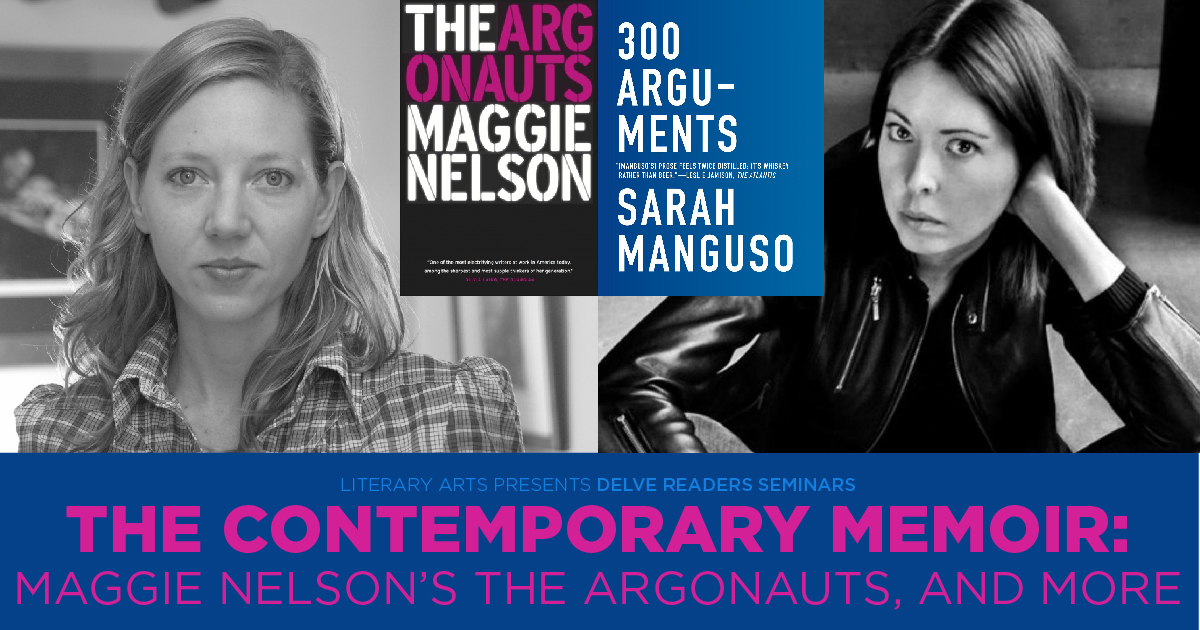Melissa Joan Walker is a local writer whose work has appeared in outlets such as the Denver Quarterly, Sentence, Banshee, theNewerYork, After Hours; Orion Headless, Parable Press and more. She holds an MFA in Writing from the School of the Art Institute of Chicago, and has taught writing, literature, and creativity to students at Roosevelt University, DePaul University, and St. Augustine College.
Melissa will guide the Delve Seminar The Contemporary Memoir that covers the works of Maggie Nelson, Sarah Manguso, Wendy S. Walters, Jay Ponteri, and more. This class will examine new memoir forms that challenge and subvert traditional notions, often relying on concision, fragmentation, and theory as much as (or more than) personal story. Click here to learn more about this upcoming class.

Q&A with Literary Arts
1. Could you tell us a little about your own writing and teaching experience?I have a lot of writing experience with fiction, poetry, and essay, and studied writing at the School of the Art Institute with Beth Nugent and Beau O’Reilly. My deepest abiding love is personal essay, which is why I was interested in designing this seminar. I taught about writing, literature, and creativity at Chicago universities for fifteen years before moving to Portland a couple years ago. My teaching style was always based on seminar discussions, which is a natural fit for the Delve program.
2. What is unique about your teaching or reading philosophy/practice?
My reading philosophy is really about discovering what exists in the text and using the text as a decoding guide that teaches us how to read it. So the questions are, “What is this text doing? What are this text’s priorities and values and how is that communicated to readers through word choice, structure, and sentence construction? Issues of whether I “like” the text or not are secondary to just figuring out what the thing even is. I really try to approach a text on its own terms.
3. Why do you feel it is resonant or relevant right now to contemplate “the contemporary memoir”? What is exciting or intriguing about this topic to you?
In the past decade memoirs have experienced a meteoric growth, really capturing the public imagination. This basic form has exploded formally over the past few years as writers continue to build on the innovative strategies that others have used in memoir (Kevin Sampsell’s collage, footnoting and collaboration in A Common Pornography or Sei Shonagon’s list-based entries and fragments in The Pillow Book) bringing these really formally experimental texts to a larger, mainstream readership. I’m curious why readers are more open to these unconventional textual choices now, and why writers in different demographics might be making the choices they’re making on the page. It’s almost passe’ to talk about our “selfie culture” — that word seems kind of dead now, but that’s only because we’ve become inured to our culture’s obsession with self-documentation. So I’m interested in seeing how the vanguard professionals in our culture are documenting the self right now and asking questions about what even constitutes the self. The “self” is ostensibly the subject of any memoir, but what do we even mean when we talk about the “self” and how are some of today’s most interesting writers responding to this question?
4. Can you give us a brief glimpse into a passage or two from these texts? Please give us a taste of what type of voices we might expect to encounter in these reading materials.
Sarah Manguso examines the impulse toward self-documentation in her memoir Ongoingness: The End of a Diary when she says, “I tried to record each moment, but time isn’t made of moments; it contains moments. There is more to it than moments. So I tried to pay close attention to what seemed like empty time.”
In Manguso’s latest book 300 Arguments, she distills this form even further into 300 brief sections — similar to aphorisms, but she calls them “arguments”. Two such arguments in the book:
“There truly are two kinds of people: you and everyone else. The best form isn’t always the most efficient form.”
Each form could be taken as an essay unto itself, and then they are placed together in this whole that builds into an overarching argument, or arguments, about experience and about language.
Maggie Nelson’s book The Argonauts was one of the most heralded books of the past couple years. She has written a memoir that relies deeply on conversation with other texts, and is as much an intellectual memoir as a personal narrative. In it, she explores gender, motherhood, sex, identity, relationship. She asks, ““How does one get across the fact that the best way to find out how people feel about their gender or their sexuality—or anything else, really—is to listen to what they tell you, and to try to treat them accordingly, without shellacking over their version of reality with yours?”
In this text, Nelson dives deeply into her own experience, looking for the radical, the wild, in our most familiar experiences, essentially that of being a human, trying to use language, and live as a wide, wild human in a body that changes from moment to moment, interacting with others who are ever-shifting as well. The resulting text, no surprise, is fragmented and shattered, yet holds together if we take fragmentation and shatteredness as acceptable forms for wholeness to take.


